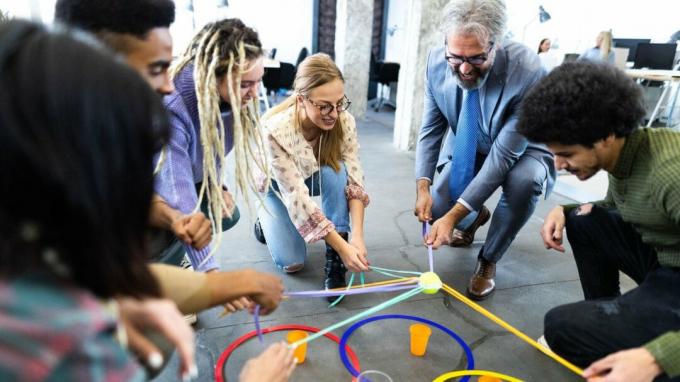Team development strategies: Team Building vs. Team Coaching
What are the key differences between Team Building and Team Coaching? Both methods are oriented towards strengthening work teams, but they vary significantly in their focus, duration and results. While Team Building generally consists of specific events designed to improve interpersonal relationships through recreational activities, Coaching Team Management is a more continuous and in-depth process that focuses on the development of individual and collective skills, as well as the achievement of long-term objectives. term. This distinction makes each approach uniquely suited to addressing different types of challenges and stages in a team's life cycle.
Both Team Building and Team Coaching are popular strategies to improve team performance in the business environment. But it is essential to understand their differences, applicability and the impact that each one can have to make the right choice of one or the other.
Team Coaching: a continuous and multifaceted process
Team Coaching is a more extensive process that covers a variety of areas, including communication effective, improving trust in the team, developing commitments and establishing objectives and clear roles.
- Long term focus: The process can last several months with regular sessions on a biweekly or monthly basis.
- Focused on specific objectives: goes beyond interpersonal relationships and focuses on specific goals and objectives that contribute to the in-depth transformation of the team.
- Sustainable development: the skills and changes acquired, when worked with more frequency and intensity, are generally longer lasting.
- Broad applicability: the skills acquired through the coaching process can have an impact beyond the team, including its entire business and family environment.
Team Building: more than a temporary event
Contrary to common perception, Team Building is not limited to recreational activities. While it is true that it is usually a more punctual and fun event, many of its activities can also include structured learning elements, such as workshops and seminars.
- Temporary but relevantThese are typically events scheduled once or twice a year, designed to address general and/or team-specific issues.
- Variety of activities: In addition to being recreational, they can be educational and focused on the acquisition of certain skills.
- Relational approach: Although their primary goal is to strengthen relationships, they can also address challenges such as communication and teamwork.
- Short term impact- Its effect may be temporary, but it can be extremely useful in resolving tensions and improving team morale at certain times.

So which is more appropriate?
Let's review some of the key points:
- Approach: Team Building focuses more on interpersonal relationships, while Team Coaching covers a broader spectrum of development.
- Duration: Team Building is generally a shorter event, while Team Coaching is a commitment that extends over time.
- Impact- Both methods can be effective, but their impact and sustainability vary. Team Coaching offers more long-term solutions.
The "Laura Gaya 360 Method" presents a holistic vision that merges essential aspects of Team Building and Team Coaching. Created by Laura Gaya, expert team coach and specialized in Art and Wellbeing, this multidimensional method focuses on optimizing different critical aspects such as the physical work environment, non-verbal communication, emotional intelligence and interpersonal relationships within the equipment. Thanks to an innovative combination of techniques that include Coaching, Yoga, Music and Feng Shui, the method is configured as an extremely versatile alternative, applicable to both in-person teams and those that work remotely.
Conclusions
Definitely, both Team Building and Team Coaching have a vital role to play in the growth and development of any team. The decision to opt for one or the other, or even a combination of both, will largely depend on of the team's unique needs, their level of maturity, and the specific challenges being addressed. faces. If you are looking for a solution that integrates the benefits of both approaches, contact Laura Gaya to design a personalized plan that elevates your team's performance to the next level.

